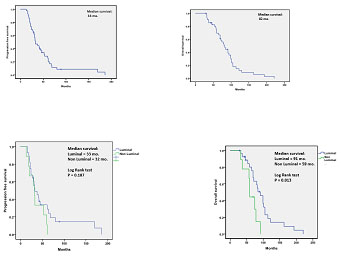The article by Andrea Nicolini and colleagues is published in Current Medicinal Chemistry, Volume 26, Issue 6, 2019
Breast cancer, in the stage with distant metastases, is an incurable disease with a 5 years survival rate of about 5-10% (1). Immunotherapy has recently improved survival in metastatic breast cancer patients with breast cancer harbouring the expression of HER 2 receptor. Particularly in HER 2 positive patients pertuzumab plus trastuzumab and docetaxel is the recommended first line regimen and in triple negative breast cancer patients (TNBC) bevacizumab plus paclitaxel or docetaxel is a reasonable option. In the metastatic breast cancer patients responding to conventional antiestrogens without or with HER 2 receptor, the addition of interferon beta-interleukin 2 sequence importantly prolongs quality and length of survival in a pilot study of 42 patients. In fact, in all patients median progression-free survival (PFS) from the beginning of hormone-therapy was 33 months, (Fig.1) and median OS 82 months (Fig 2); cumulative survival at 5 and 10 years±SE were 0.69±0.07 and 0.15±0.06 respectively. In the overall population these data confirm the previously reported findings (2-4). In the luminal sub-type, median PFS was 33 months (Fig.3) and median OS was 91 months (Fig 4).

In the non-luminal sub-type, median PFS was 32 months and median OS was 59 months. Therefore, a relevant PFS and OS improvement occurred both in luminal and in non-luminal molecular subtypes compared with that expected in similar populations. In fact, equal or less than 10 months [5, 6] is the reported median PFS in non-luminal breast cancer patients and it ranges from 11.2 months [7] to 15.6 months [8] in luminal patients. Moreover, 30.6 and 24.4 months have been reported as the best median OS in luminal and non-luminal breast cancer patients respectively [9]. In some observational or phase I/II studies on HER 2 peptide/protein vaccines promising although preliminary findings have been reported.
For more information, please visit: http://www.eurekaselect.com/159672